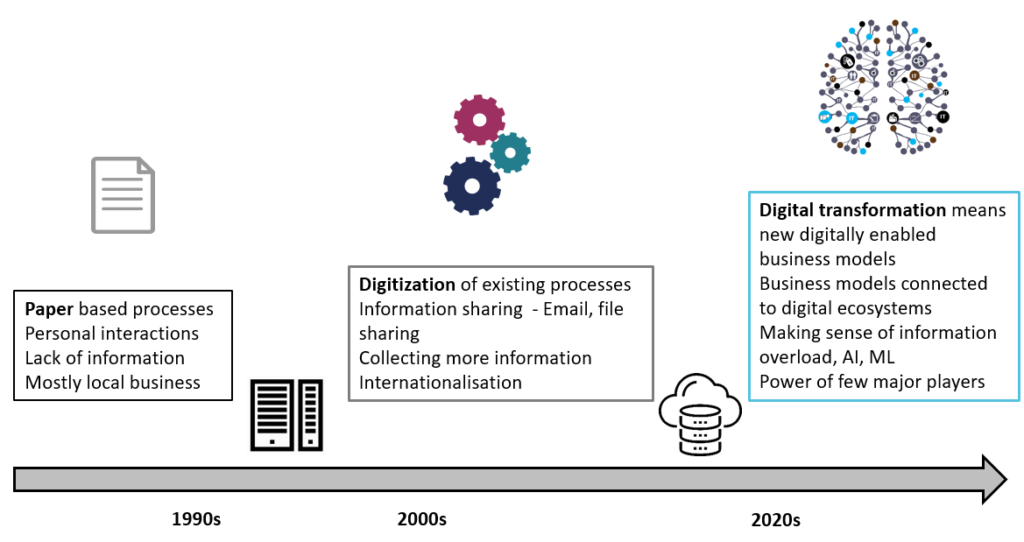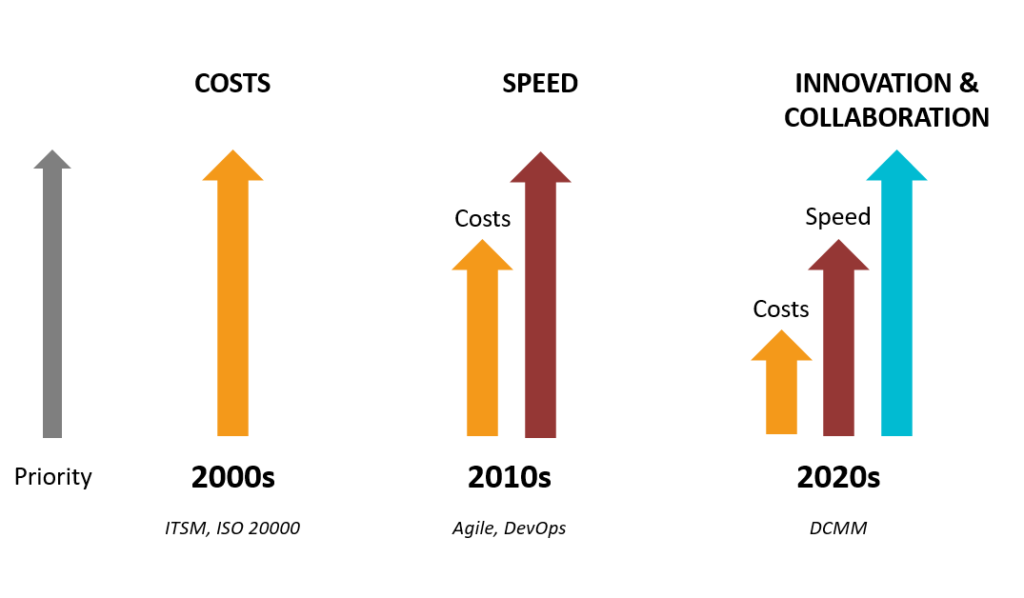Digital transformation is an opportunity for many organizations to grow and engage with different digital ecosystems,
However, the role of IT in the digital transformation is unclear to many IT managers, as they have identified with the IT management paradigm as a service provider (ITSM) or software (Agile, DevOps) according to business needs. However, this logic is currently obsolete, the role of IT has moved to the strategic level and therefore the digital capabilities of the organization are a prerequisite for the future of any company.
The role of IT therefore changes over time:
The 1990s – the transfer of work from paper to digital, where processes remained unchanged – emphasis on Technology
2000s – digitization of processes, workflow, approval, reporting – while maintaining the original internal logic of business processes – focus on processes
2020 – digital transformation means involvement in complex digital ecosystems, cooperation with innovation clusters, innovation and new business models – focus on innovation and cooperation
Each of these stages means a different position for IT in the organization. The digital transformation requires a change in the paradigm of IT management, transforming IT into knowledge work, exploring the possibilities of new technologies and engaging in external digital ecosystems with extensive data exchange.
For CIOs and IT management as such, the strategic focus must shift from cost and speed to innovation, and the ability to collaborate. The new management model, the goals of IT management, the importance of the skills of IT staff is changing massively.
The modern CIO is aware of this change and actively implements and communicates this change in the company. The digital age means turning IT into the nervous system of an organization that provides new capabilities and opportunities.
If you want to learn about the role of IT in digital transformation, there are more details in the courses DCMM Masterclass and Digital transformation for CIO

For CIOs and IT management as such, the strategic focus must shift from cost and speed to innovation, and the ability to collaborate. The new management model, the goals of IT management, the importance of the skills of IT staff is changing massively.
The modern CIO is aware of this change and actively implements and communicates this change in the company. The digital age means turning IT into the nervous system of an organization that provides new capabilities and opportunities.

If you want to learn about the role of IT in digital transformation, there are more details in the courses DCMM Masterclass and Digital transformation for CIO